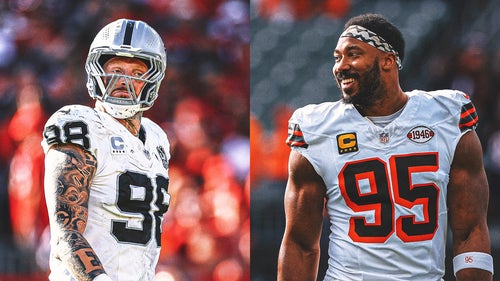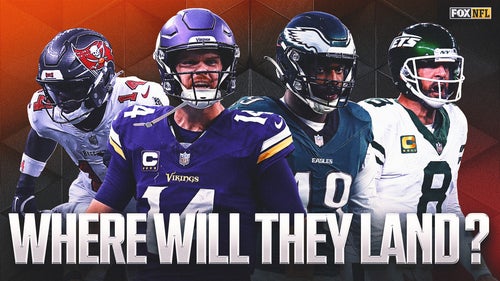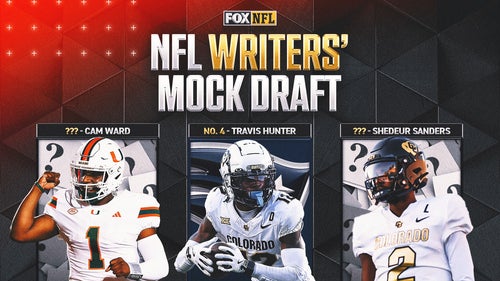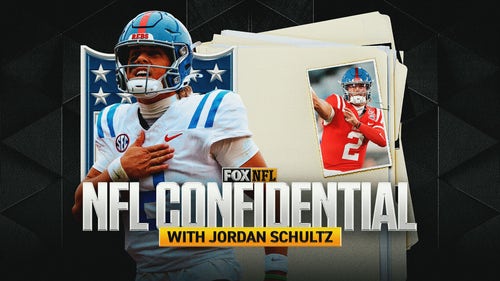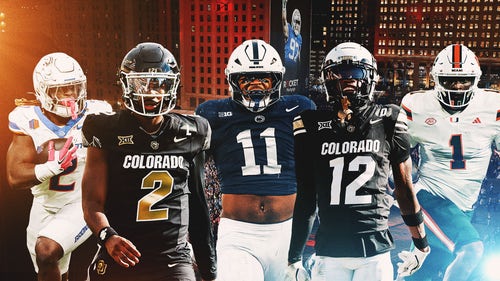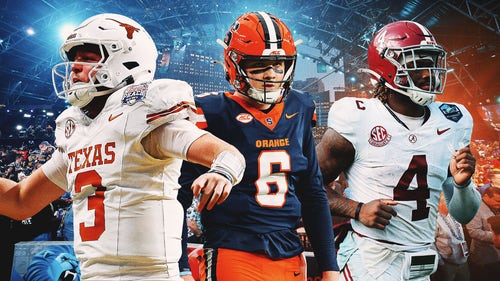
Refs make best of frigid conditions
They played the AFC Divisional Playoff game in Denver in below-zero temperatures with the wind chill Saturday, a classic won by Baltimore 38-35 over the Broncos in double overtime. Quite the upset.
I can relate in more ways than one. First, because the “ice” cube where I work most of the time at the FOX Command Center felt like it was 10-below on Saturday. And second, because I'm upset by the perception of how some fans thought the officiating was bad in this game.
There were 18 penalties called in the game and you could say the officiating crew got a frigid review from my Twitter followers, many indicating that the game was not called very well.
I disagree.
Baltimore-Denver was a tough game to officiate. There were a lot of points scored (73), a lot of passes thrown (77) and as I mentioned, it was cold. In fact, it was so cold where I was, I'm surprised my fingers didn't go numb typing this sentence.
But I have a good idea why so many people felt that way about the officials. Because the announcers weren't always in agreement with what was ruled on the field. Which doesn't necessarily mean that the officials were wrong.
Two plays I want to use to illustrate my point were interpreted differently by the announcing crew, which I'm sure swayed public perception. But in my opinion, these calls made by referee Bill Vinovich and his crew were correct.
PLAY 1
The Situation: Denver had the ball, third-and-11 with 2:57 left in the third quarter. Denver led 28-21.
The Play: Denver quarterback Peyton Manning dropped back to pass and was pressured. At first he cocked his arm like he was going to pass the ball and tried to bring it back into his body. The ball came loose and it was recovered by Baltimore's Paul Kruger. I got many tweets about this possibly being a tuck play, but after a review, the play stood as called and the Ravens took over on the Denver 37-yard line.
My Take: First thing to remember, is that the play was ruled a fumble on the field. The tuck rule states that if a player loses possession after he tucks the ball back into his body, it is a fumble. And that was the key. Manning did get the ball all the way back to his body before it was knocked out. If the ball would have come loose when Manning was tucking it back towards his body, then it would have been an incomplete pass. But since he had tucked it back to his body, it then became a fumble. Five plays later, the Ravens tied the game on a Ray Rice 1-yard touchdown.
PLAY 2
The Situation: Baltimore had the ball, third-and-8 at the Baltimore 22-yard line with 12:30 in overtime. The score was tied at 35.
The Play: Baltimore quarterback Joe Flacco completed an 11-yard pass to Anquan Boldin, who caught the ball and then rolled to the ground. It appeared the ball touched the ground, but Boldin did maintain possession with his right hand. After a review the play was upheld.
My Take: Again, remember the ruling on the field is very important. The officials ruled that Boldin had made the catch. He did bobble the ball, but he regained possession with his right hand on his way to the ground. The ball hit the ground, but in order for the pass to be ruled incomplete, Boldin would have literally had to lose possession of the ball. Boldin's right hand stayed on the ball at all times. The ground was deemed not to have aided Boldin in completing the catch, since he had possession first before he hit the ground. If the ball touches the ground simultaneously with possession being gained, then the ground is deemed to have aided in the completion of the catch and the pass is incomplete. Again, Vinovich made the correct ruling.
But I want to point out, the officials made some mistakes as well. They always do. Officials make mistakes every week, most of them happen in the passing game, which is the hardest part of the game to call.
And here is something unusual that the officials didn't see, but should have, and it had a ton of people talking.
As Baltimore was driving for the winning field goal, the first quarter of overtime ended. The Ravens had the ball at the 34-yard line and their kicker, Justin Tucker, ran out onto the field in between quarters and practiced a field goal of 48 yards.
Four plays later Tucker kicked a winning 47-yard field goal.
Kicker Jay Feely, who kicked for the Arizona Cardinals this past season, was tweeting with me afterwards and said that he been told by officials he could not do that during the season and told me that a penalty should have been called in the Baltimore-Denver game.
Feely was right in saying he couldn't do it, but he was incorrect saying it was a penalty. There's nothing in the rule book that makes it a penalty. There are many other situations where you are not allowed to do things, but it doesn't make it a penalty. A team is not allowed to request a fourth time out. But it's not a penalty if they do. Teams are told not to fake an injury, but it's not a penalty if they do.
Well, the same thing applied in the Ravens-Broncons game. Teams and kickers are told they aren't allowed to go on the field to practice a kick. But if they do, it's not a penalty. If the officials had seen Tucker, they would have told him to stop immediately and to leave the field.
The officials did not call a poor game. If you think otherwise, that's just cold.

